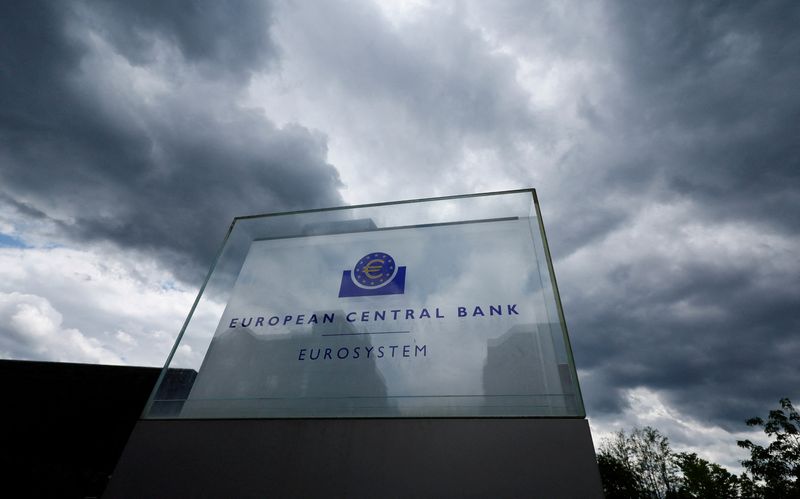FRANKFURT (Reuters) - The European Central Bank faces an "easy last kilometre" in its fight against inflation and can continue to slowly cut interest rates, two researchers are set to tell the ECB's top brass next week.
The paper by Giorgio Primiceri and Domenico Giannone will be the first to be presented at the ECB's annual get-together in a hilltop resort near Sintra, Portugal, on Tuesday.
The researchers used a model that decomposes inflation into supply, demand and the effect of monetary policy on the latter to conclude that inflation was heading back to the ECB's 2% target barring new shocks.
"This analysis indicates that there are reasons to be optimistic about inflation, both in the immediate and the more distant future," Primiceri and Giannone wrote in their paper.
"In fact, our model predicts an 'easy last kilometre' in the coming quarters."
ECB board member Isabel Schnabel has been warning that "the last mile of disinflation" would prove "the most difficult" after a sharp drop in energy prices helped bring down inflation from its 10% peak in late 2022 to 2.6% last month.
But the paper sees inflation easing to the ECB's goal next year and staying there through 2026 even as the policy rate is cut to 2.5% from 3.75% currently. This is in line with market expectations.
Contrary to the prevailing narrative, repeated by the ECB's chief economist Philip Lane on Thursday, the authors found that a stronger-than-expected recovery in demand after the COVID pandemic, rather than constrained supply, accounted for most of the high inflation in 2021-22.

If the ECB had tightened policy sooner, inflation would have peaked at just 6% but at the price of one percentage point of lost economic output, the paper argued.
"Since economic activity was already strained by adverse supply conditions, such policy has likely helped avoid a substantial further decline in economic activity," the authors said.